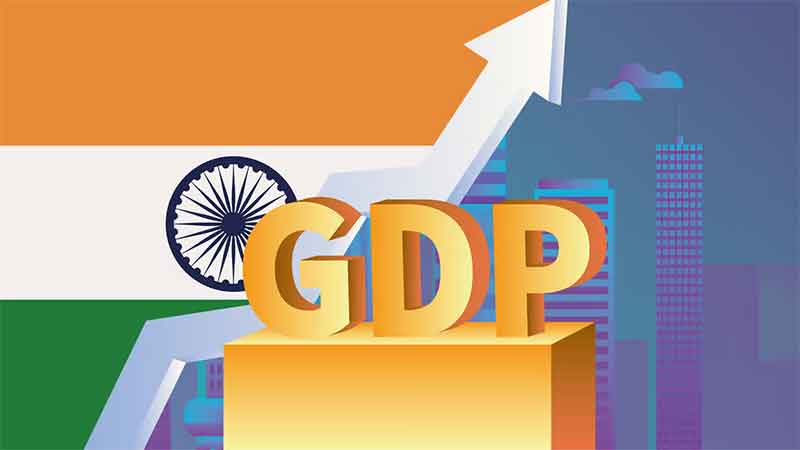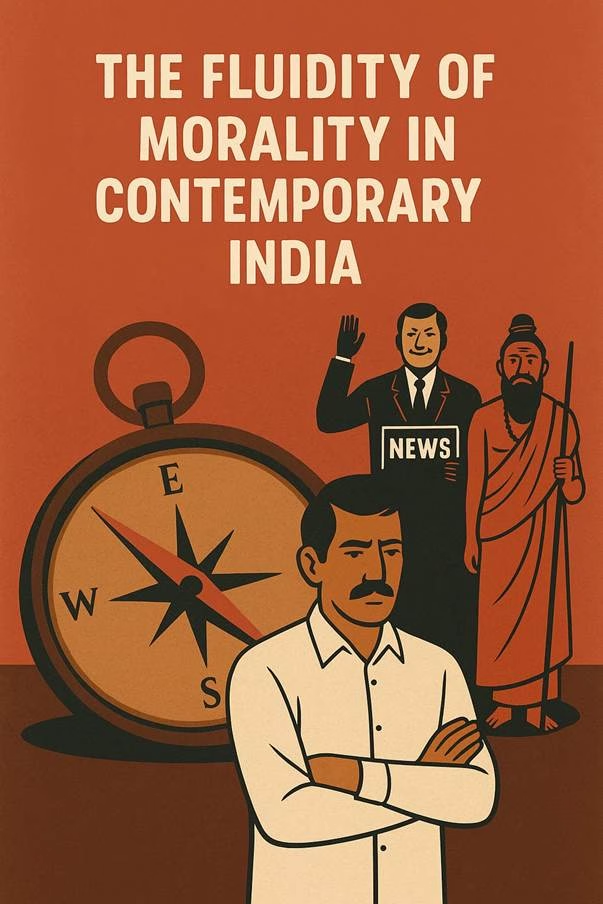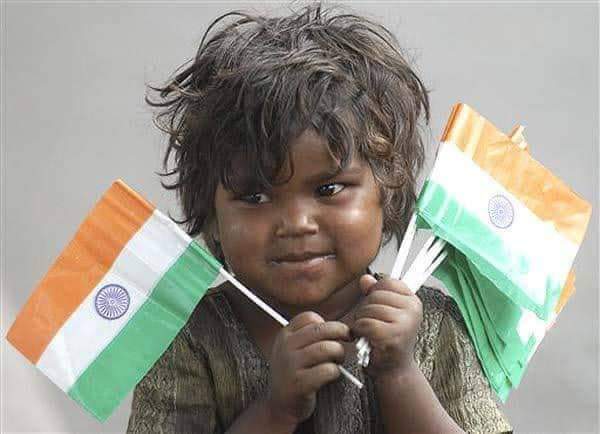
Briefing the media last week, after tenth Governing Council Meeting of NITI Aayog in New Delhi, CEO Subrahmanyam said India is now a ‘four trillion dollar’ economy, standing only behind USA, China and Germany. He further stated India according to IMF estimates has slightly overtaken GDP of Japan’s US$ 4,186.431 billions. Despite being the fourth largest economy globally in terms of nominal GDP, looking deep the data reveals disturbing facts such as low per capita GDP and human development index, besides very high inequalities.
Interestingly, timing of revelation of this economic achievement is surprising at a time, many questions are being raised regarding gruesome Pahalgam attack, intelligence failures, untimely ceasefire with Trump’s intervention and greying Vishwaguru image of PM Modi globally and nationally. Perhaps the time is correctly chosen to divert public attention from all these issues and persisting domestic economic woes.
In wake of claims of becoming the fourth economic power and doubling of per capita income during the last one decade of NDA rule, poverty reduction, why 82 crore citizens are still receiving free grain rations, despite dispensation of nearly Rs lakh crore worth of MUDRA loans and high rates of unemployment persist. It’s a widely acknowledged that present regime as part of its neoliberal economic philosophy is actively working to privatize public assets and dismantle the self reliant economic model of the nation.
Widening inequalities
GDP being a single figure to capture growth is easy to measure and widely used for standard comparison. Governments are obsessed with GDP growth as reflection of their performance, despite the fact that it leaves out too many things which are crucial to deliver economic growth and provide employment. According to the IMF, with a per capita GDP of US $2,878.45, India is ranked 141st out of 194 economies in the world. In rupee terms of monthly income it equals to Rs 20,389 for every citizen. According to Oxfam, 2025, the richest 1% in India is estimated to control over 40% of the country’s total wealth, while the bottom 50% own just 3% of GDP. In real terms of average monthly income, urban poor earn Rs 15,000, while their rural counterparts earn mere Rs 10,400 per month. On average poor in villages get employment on average 200 days but not although the year. There exists gender disparity in wages as well. Hence, its unscientific to equate per capita GDP and income drawn by Mr Adani with a common man earning merely Rs. 10,000 a month.
Billionaires Pocketing Wealth
Today economy is in doldrums as manufacturing and agriculture are facing severe crisis. The share of manufacturing has plummeted to 13 percent and the domestic consumption is not rising either. Exports of manufactured goods, farm products and services are facing uncertainty from President Trump’s protectionism and high tariffs. Added to this, the, neoliberal, anti people policies of present PM Modi government followed during the last 11 years severely battered the performance of MSME and public sector units. MSME sector comprise a large number of micro enterprises and employs a large number of daily wage earners. MSME, shares in overall GDP is around 30 per cent (GOI, 2018), and accounts for about 45 percent of manufacturing output and around 40 percent of total exports of the country. RBI study (2018) reports that Micro, Small and Medium Enterprises have been adversely hit by demonetisation and rolling out of the Goods and Services Tax (GST). Access to credit and resources are lifeline of MSME sector. Both demonetisation and GST have severely (nearly 82 percent of units) affected them , increasing compliance and other operating costs as most of the units were brought into the tax net. Consequently nearly 40 percent of wage earners lost employment as many units became bankrupt and closed. During the last 11 years Modi government has privatized and gifted away several public assets starting from sea ports, airports, highways, coal imports, power plants, cement, gas and solar projects to Adani and a to a few selected crony capitalists at throw away prices. Even not considering a single tender , keeping away potential competetetors. Closure or handing over of a large number of public sector units to the networth of Rs17 lakh crores not only crippled the economy but also worsened the unemployment problem. For example, in 2013 public sector establishments nation wide employed nearly 17 lakh workers and after a decade the number shrunk to 12 lakhs.
Transfer of valuable public assets to a handful of crony capitalists has enormously increased their wealth. Today combined net worth of Adani and Ambani amounts to Rs17 to 18 lakh crores ($200 billions). While 1 percent of super rich are owning nearly 43 Percent and bottom 50 percent of wealth, only 3 % is owned by bottom 50 percent of population, clearly shows the extent of prevailing inequalities in distribution of GDP. In 2024, the agriculture sector contributed to approximately 16% of India’s GDP. A major reason for poverty in rural India as it is surviving with low wages and consumption of goods. Unless government’s investments in villages rise, farmers are ensured of guaranteed prices for their produce , land is distributed democratically to landless and tenant small farmers production and incomes will not rise this sector’s share of GDP..
Not content with transfer of public assets to a few privileged capitalists under National Infrastructure Pipeline 1 in recent past, Niti Ayog today is proposing a plan NIP II, by identifying infrastructure projects under the public assets for further privatization to mobilize Rs10 lakh crores. The proposed transfer of assets and land parcels will include- highways, railways, power, petroleum and natural gas, ports, warehousing and storage, urban infrastructure, transport, coal mines and telecom and others. This move will further deteriorate economic health and potentially reduce share of GDP from manufacturing sector. It’s a well known fact that Ambani and Adani are the chief beneficiaries of privatization of PSUs. But together Ambani and Adani, with a net worth of $ 200 billions or Rs 18 lakh crores employ merely 4.0 lakh workers against nearly 12 lakh workers in public sector.
Unless radical measures are taken to rise income of workers and farmers, per capita GDP of the later will not rise and India can not emerge in to a middle income “ Vikasit Bharat”.
Subscribe to Our Newsletter
Get the latest CounterCurrents updates delivered straight to your inbox.
Dr. Soma Marla, a retired Principal Scientist with ICAR, Govt. of India and Associate Professor, Virginia Polytechnic & State University, USA.
















































